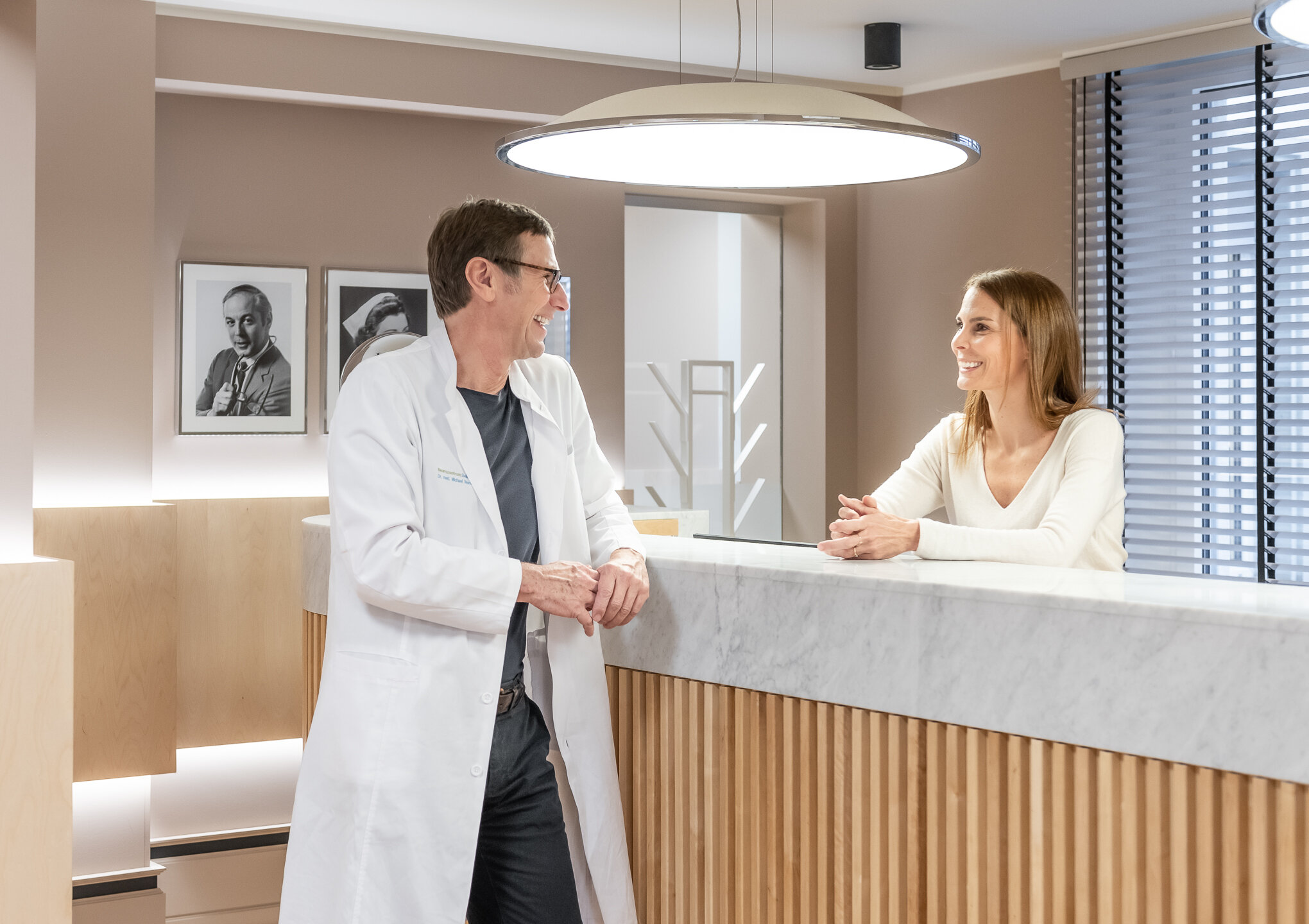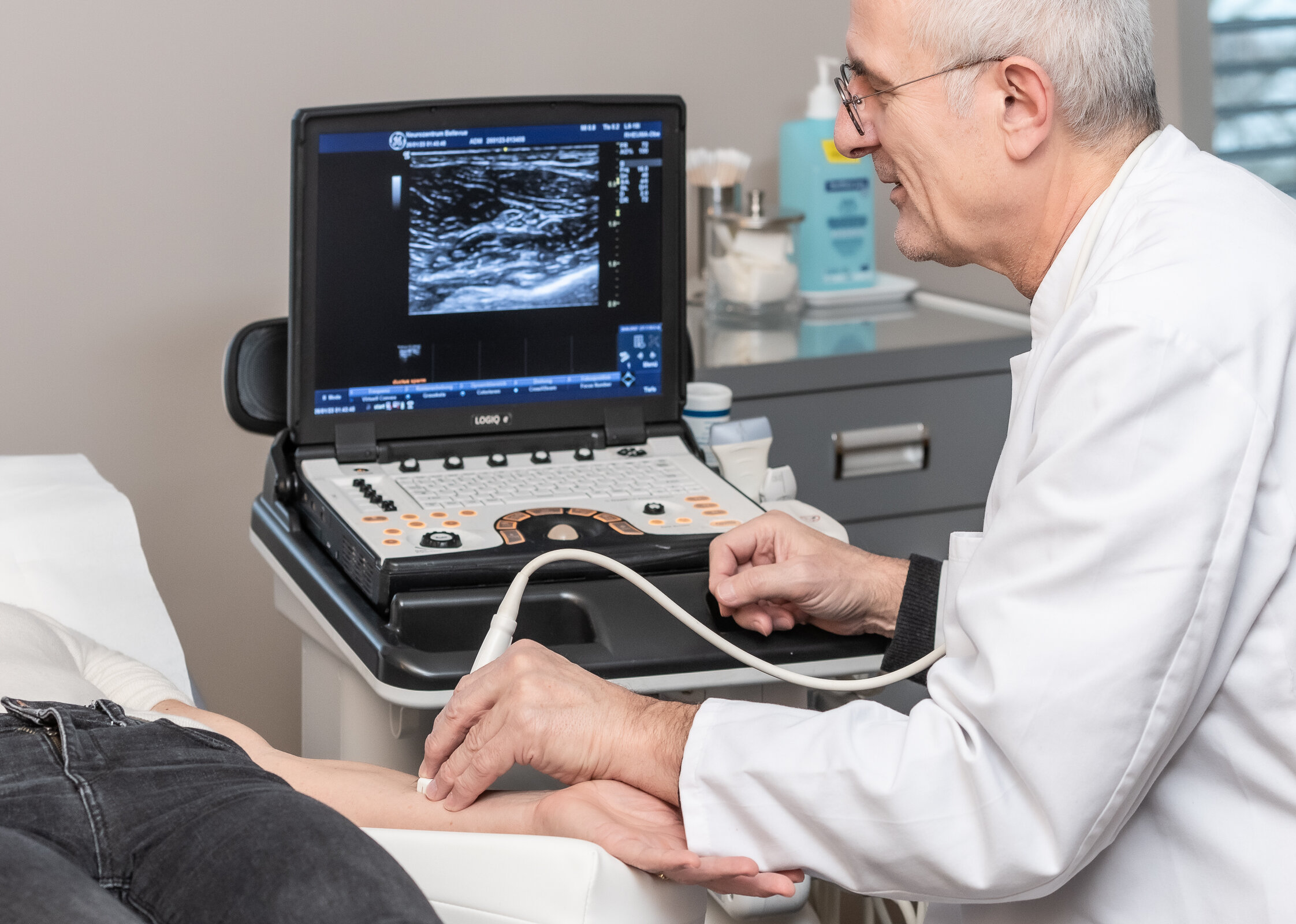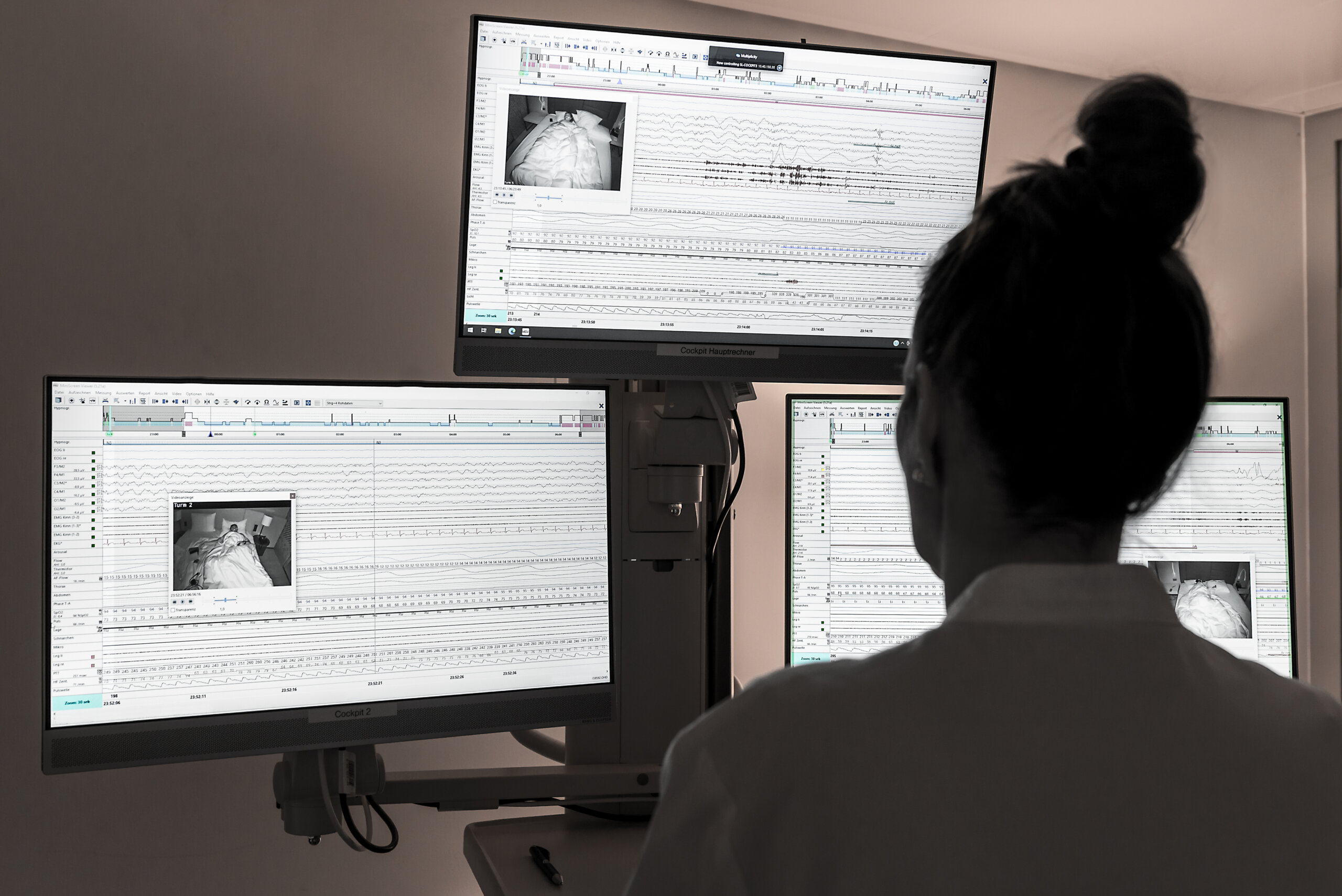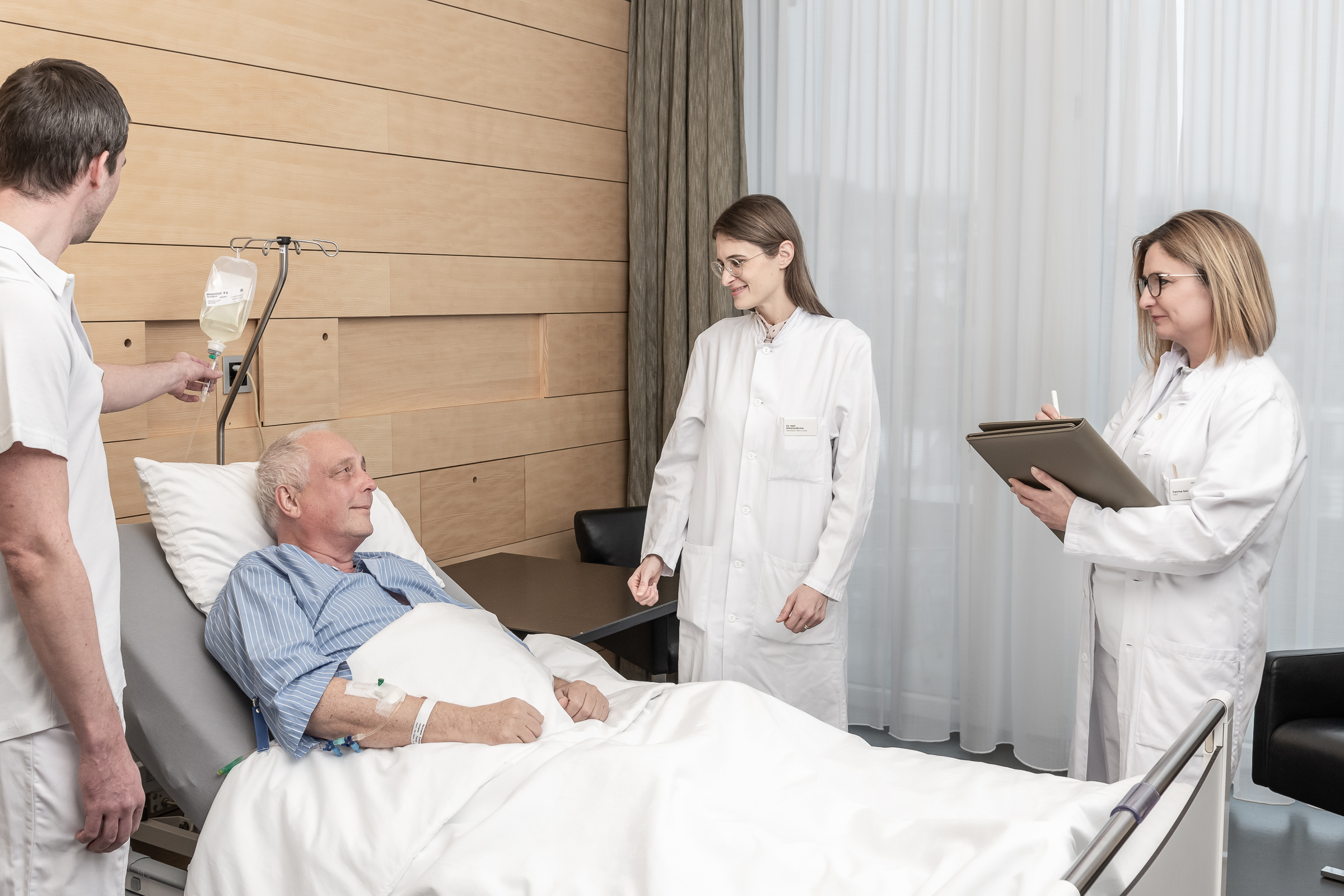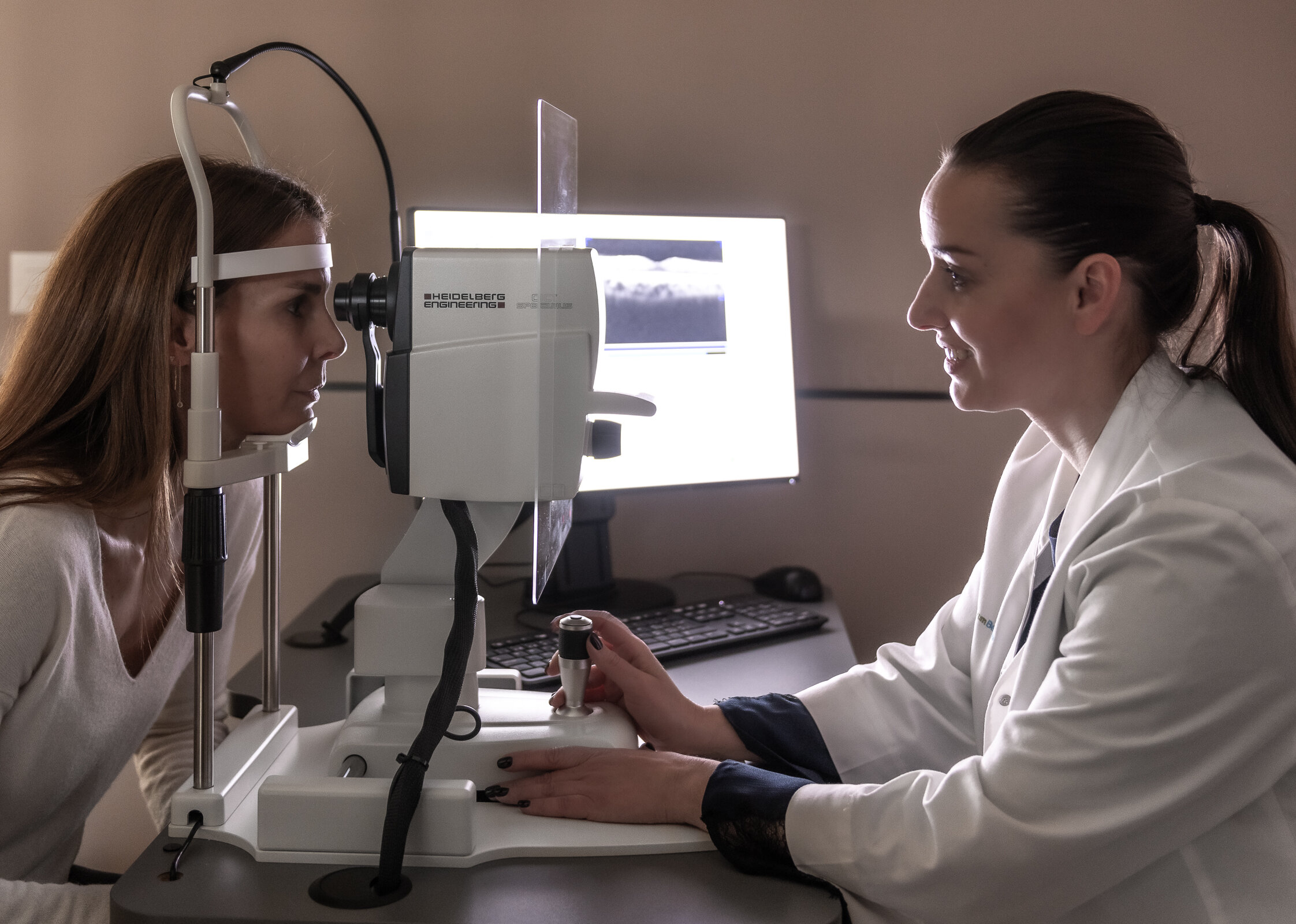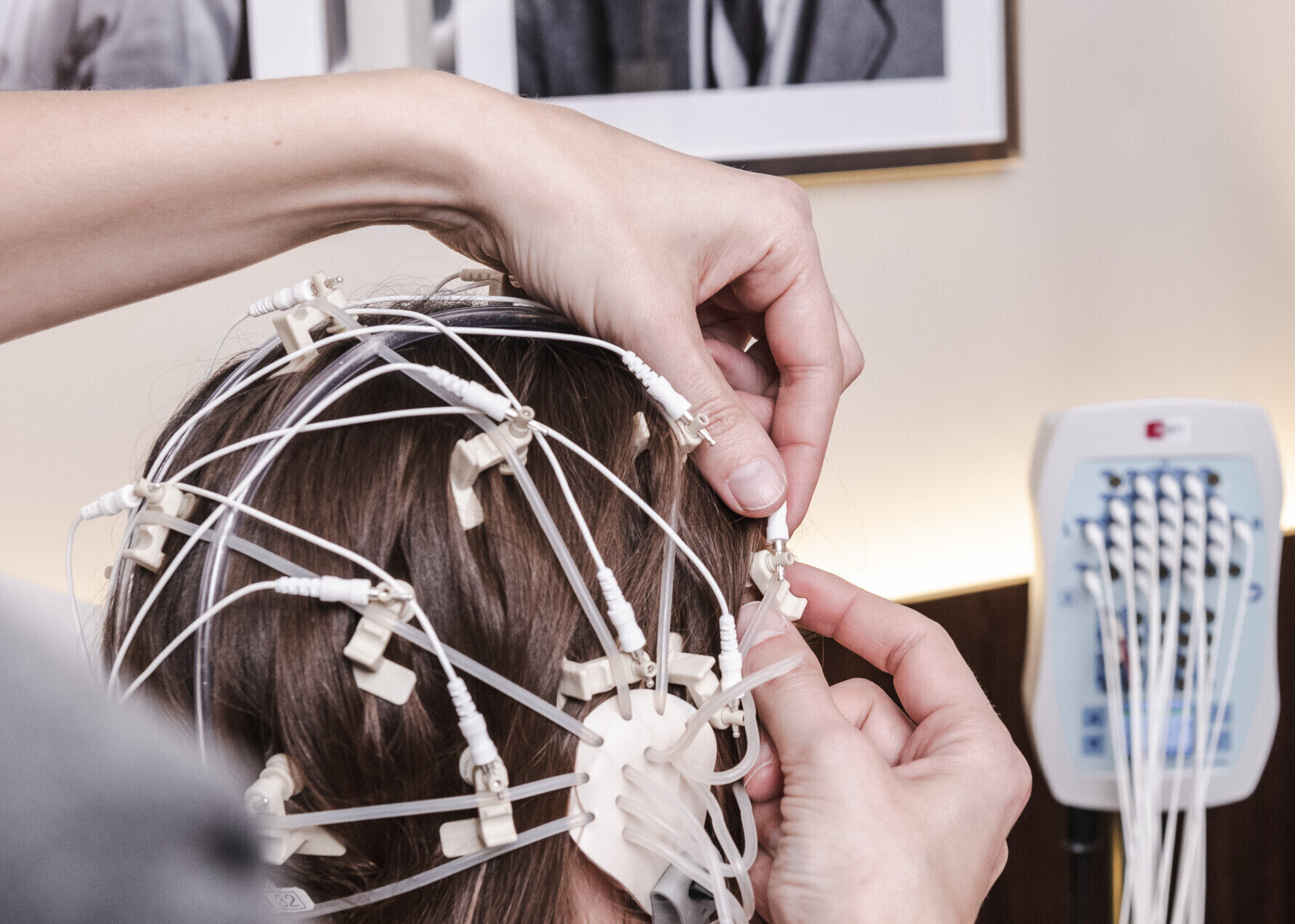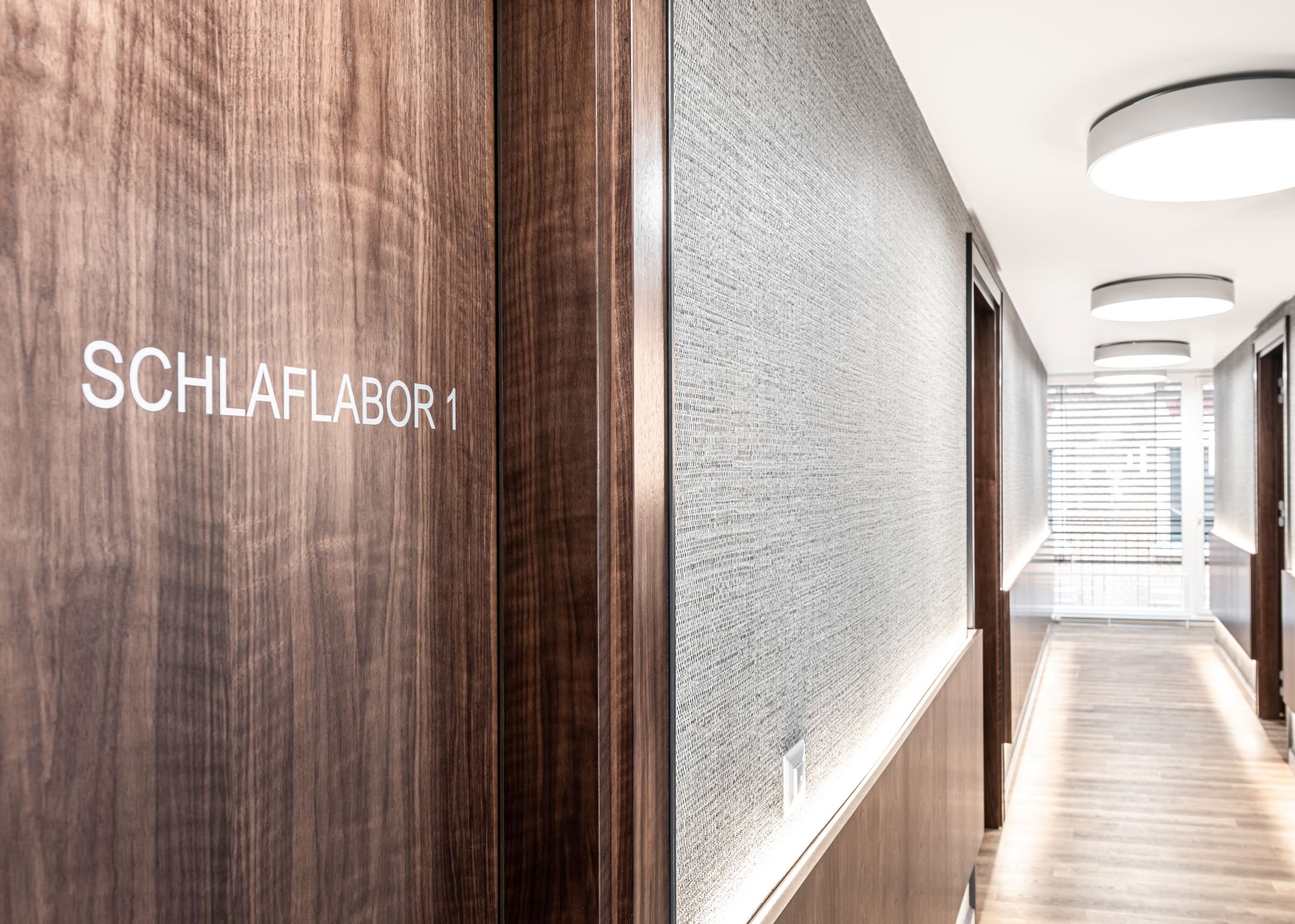Analyse / Statistik (nicht IAB) (1)
Anonyme Auswertung zur Fehlerbehebung und Weiterentwicklung
Google Analytics (via Google Tag Manager (USA))
Google LLC, USA
Beim Besuch dieser Website werden personenbezogene Daten verarbeitet. Dabei verarbeitete Datenkategorien: technische Verbindungsdaten des Serverzugriffs (IP-Adresse, Datum, Uhrzeit, abgefragte Seite, Browser-Informationen) und Daten über die Nutzung der Website sowie die Protokollierung von Klicks auf einzelne Elemente. Zweck der Verarbeitung: Anonymisierung und Erstellung von Statistiken, Untersuchung des Nutzungsverhaltens und Optimierung von Inhalten. Die Rechtsgrundlage für die Verarbeitung: Ihre Einwilligung nach Art. 6 (1) a DSGVO. Eine Übermittlung von Daten erfolgt: an den selbständigen Verantwortlichen Google LLC, Amphitheatre Parkway, Mountain View, CA 94043, USA. Die Rechtsgrundlage für die Datenübermittlung an Google LLC ist Ihre Einwilligung nach Art. 6 (1) a DSGVO. Dies kann auch eine Übermittlung von personenbezogenen Daten in ein Land außerhalb der Europäischen Union bedeuten. Die Übermittlung der Daten in die USA erfolgt aufgrund Art. 45 DSGVO iVm der Angemessenheitsentscheidung C(2023) 4745 der Europäischen Kommission, da sich der Datenempfänger zur Einhaltung der Grundsätze der Datenverarbeitung des Data Pricacy Frameworks (DPF) verpflichtet hat.
via Google Tag Manager (USA)
Beim Besuch dieser Website werden personenbezogene Daten verarbeitet. Dabei verarbeitete Datenkategorien: technische Verbindungsdaten des Serverzugriffs (IP-Adresse, Datum, Uhrzeit, abgefragte Seite, Browser-Informationen). Zweck der Verarbeitung: Auslösung, Steuerung und Verwaltung weiterer Dienste unserer Website. Die Rechtsgrundlage für die Verarbeitung: ein berechtigtes Interesse, das die Rechte und Freiheiten der betroffenen Personen überwiegt (Art. 6 (1) f DSGVO). Berechtigte Interessen in diesem Zusammenhang: starkes wirtschaftliches Interesse an einem sicheren und funktionierenden Betrieb der technischen Systeme, Einhaltung von gesetzlichen und vertraglichen Pflichten. Eine Übermittlung von Daten erfolgt: an den Auftragsverarbeiter Google Ireland Limited, Gordon House, Barrow Street, Dublin 4, Irland. Dies kann auch eine Übermittlung von personenbezogenen Daten in ein Land außerhalb der Europäischen Union bedeuten. Die Übermittlung der Daten in die USA erfolgt aufgrund Art. 45 DSGVO iVm der Angemessenheitsentscheidung C(2023) 4745 der Europäischen Kommission, da sich der Datenempfänger zur Einhaltung der Grundsätze der Datenverarbeitung des Data Pricacy Frameworks (DPF) verpflichtet hat.
Sonstige Inhalte (nicht IAB) (2)
Einbindung zusätzlicher Informationen
Instagram
Meta Platforms Ireland Ltd., Irland
Beim Zugriff auf manche Teildienste unserer Website werden zusätzliche personenbezogene Daten verarbeitet. Dabei verarbeitete Datenkategorien: technische Verbindungsdaten des Serverzugriffs (IP-Adresse, Datum, Uhrzeit, abgefragte Seite, Browser-Informationen) und Daten über die Nutzung der Website sowie die Protokollierung von Klicks auf einzelne Elemente. Zweck der Verarbeitung: Auswahl von Online-Werbung auf anderen Plattformen, die mittels Real-Time-Bidding anhand des Nutzungsverhaltens automatisch ausgewählt werden und Bereitstellung von Social Media-Diensten. Die Rechtsgrundlage für die Verarbeitung: Ihre Einwilligung nach Art. 6 (1) a DSGVO. Eine Übermittlung von Daten erfolgt: in gemeinsamer Verantwortung an Meta Platforms Ireland Ltd., 4 Grand Canal Square, Grand Canal Harbour, Dublin 2, Irland. Dies kann auch eine Übermittlung von personenbezogenen Daten in ein Land außerhalb der Europäischen Union bedeuten. Die Übermittlung der Daten in die USA erfolgt aufgrund Art. 45 DSGVO iVm der Angemessenheitsentscheidung C(2023) 4745 der Europäischen Kommission, da sich der Datenempfänger zur Einhaltung der Grundsätze der Datenverarbeitung des Data Pricacy Frameworks (DPF) verpflichtet hat.
via Google Tag Manager (USA)
Beim Besuch dieser Website werden personenbezogene Daten verarbeitet. Dabei verarbeitete Datenkategorien: technische Verbindungsdaten des Serverzugriffs (IP-Adresse, Datum, Uhrzeit, abgefragte Seite, Browser-Informationen). Zweck der Verarbeitung: Auslösung, Steuerung und Verwaltung weiterer Dienste unserer Website. Die Rechtsgrundlage für die Verarbeitung: ein berechtigtes Interesse, das die Rechte und Freiheiten der betroffenen Personen überwiegt (Art. 6 (1) f DSGVO). Berechtigte Interessen in diesem Zusammenhang: starkes wirtschaftliches Interesse an einem sicheren und funktionierenden Betrieb der technischen Systeme, Einhaltung von gesetzlichen und vertraglichen Pflichten. Eine Übermittlung von Daten erfolgt: an den Auftragsverarbeiter Google Ireland Limited, Gordon House, Barrow Street, Dublin 4, Irland. Dies kann auch eine Übermittlung von personenbezogenen Daten in ein Land außerhalb der Europäischen Union bedeuten. Die Übermittlung der Daten in die USA erfolgt aufgrund Art. 45 DSGVO iVm der Angemessenheitsentscheidung C(2023) 4745 der Europäischen Kommission, da sich der Datenempfänger zur Einhaltung der Grundsätze der Datenverarbeitung des Data Pricacy Frameworks (DPF) verpflichtet hat.
PGRpdiBjbGFzcz0ic3AtZHNndm8gc3AtZHNndm8tZW1iZWRkaW5nLWNvbnRhaW5lciBzcC1kc2d2by1lbWJlZGRpbmctZW1iZWRkaW5nc19pbnN0YWdyYW0iPjxkaXYgY2xhc3M9InNwLWRzZ3ZvLWJsb2NrZWQtZW1iZWRkaW5nLXBsYWNlaG9sZGVyIHNwLWRzZ3ZvLWJsb2NrZWQtZW1iZWRkaW5nLXBsYWNlaG9sZGVyLWVtYmVkZGluZ3NfaW5zdGFncmFtIj4gIDxkaXYgY2xhc3M9InNwLWRzZ3ZvLWJsb2NrZWQtZW1iZWRkaW5nLXBsYWNlaG9sZGVyLWhlYWRlciI+PGltZyBjbGFzcz0ic3AtZHNndm8tYmxvY2tlZC1lbWJlZGRpbmctcGxhY2Vob2xkZXItaGVhZGVyLWljb24iIGFsdD0iIiBhcmlhLWhpZGRlbj0idHJ1ZSIgc3JjPSJkYXRhOmltYWdlL3N2Zyt4bWw7YmFzZTY0LFBEOTRiV3dnZG1WeWMybHZiajBpTVM0d0lpQmxibU52WkdsdVp6MGlkWFJtTFRnaVB6NEtQQ0V0TFNCSFpXNWxjbUYwYjNJNklFRmtiMkpsSUVsc2JIVnpkSEpoZEc5eUlESTBMakF1TUN3Z1UxWkhJRVY0Y0c5eWRDQlFiSFZuTFVsdUlDNGdVMVpISUZabGNuTnBiMjQ2SURZdU1EQWdRblZwYkdRZ01Da2dJQzB0UGdvOGMzWm5JSFpsY25OcGIyNDlJakV1TVNJZ2FXUTlJa1ZpWlc1bFh6RWlJSGh0Ykc1elBTSm9kSFJ3T2k4dmQzZDNMbmN6TG05eVp5OHlNREF3TDNOMlp5SWdlRzFzYm5NNmVHeHBibXM5SW1oMGRIQTZMeTkzZDNjdWR6TXViM0puTHpFNU9Ua3ZlR3hwYm1zaUlIZzlJakJ3ZUNJZ2VUMGlNSEI0SWdvSklIWnBaWGRDYjNnOUlqQWdNQ0E1T1M0NElEazVMamdpSUhOMGVXeGxQU0psYm1GaWJHVXRZbUZqYTJkeWIzVnVaRHB1WlhjZ01DQXdJRGs1TGpnZ09Ua3VPRHNpSUhodGJEcHpjR0ZqWlQwaWNISmxjMlZ5ZG1VaVBnbzhjM1I1YkdVZ2RIbHdaVDBpZEdWNGRDOWpjM01pUGdvSkxuTjBNSHRtYVd4c09pTXpSak5HTTBZN2ZRb0pMbk4wTVh0bWFXeHNPaU5FUlRsR01qYzdmUW9KTG5OME1udG1hV3hzT2lOR1JrWkdSa1k3ZlFvSkxuTjBNM3RtYVd4c09uVnliQ2dqVTFaSFNVUmZNVjhwTzMwS0NTNXpkRFI3Wm1sc2JEcDFjbXdvSTFOV1IwbEVYekpmS1R0OUNna3VjM1ExZTJacGJHdzZJekF3T1VWRFFqdDlDZ2t1YzNRMmUyWnBiR3c2ZFhKc0tDTlRWa2RKUkY4elh5azdmUW9KTG5OME4zdG1hV3hzT25WeWJDZ2pVMVpIU1VSZk5GOHBPMzBLQ1M1emREaDdabWxzYkRwMWNtd29JMU5XUjBsRVh6VmZLVHQ5Q2drdWMzUTVlMlpwYkd3NmRYSnNLQ05UVmtkSlJGODJYeWs3ZlFvSkxuTjBNVEI3Wm1sc2JEcDFjbXdvSTFOV1IwbEVYemRmS1R0OUNna3VjM1F4TVh0bWFXeHNPblZ5YkNnalUxWkhTVVJmT0Y4cE8zMEtDUzV6ZERFeWUyWnBiR3c2ZFhKc0tDTlRWa2RKUkY4NVh5azdmUW9KTG5OME1UTjdabWxzYkRwMWNtd29JMU5XUjBsRVh6RXdYeWs3ZlFvSkxuTjBNVFI3Wm1sc2JEcDFjbXdvSTFOV1IwbEVYekV4WHlrN2ZRb0pMbk4wTVRWN1ptbHNiRHAxY213b0kxTldSMGxFWHpFeVh5azdmUW84TDNOMGVXeGxQZ284Wno0S0NUeHdZWFJvSUdOc1lYTnpQU0p6ZERFaUlHUTlJazAyTkN3ME9DNHlZekF0Tmk0MkxUVXVOQzA1TGpNdE1URXVNeTB4TVM0eVl5MDFMVEV1TnkwM0xqUXRNaTQzTFRjdU5DMDFMakpqTUMweUxqSXNNaTR6TFRNdU55dzFMamN0TXk0M1l6TXVOQ3d3TERVdU9Dd3hMRGN1TWl3eExqbHNNUzR4TERBdU53b0pDV3d5TGpFdE5TNDNiQzB3TGpndE1DNDBZeTB5TGpZdE1TNDFMVFl0TWk0ekxUa3VOUzB5TGpOakxUY3VOeXd3TFRFekxEUXVNaTB4TXl3eE1DNHpZekF1TVN3eExqa3NNQzQ0TERNdU9Td3hMamdzTlM0ell5MHlMamNzTWk0eExUUXVNaXcwTGpndE5DNHlMRGN1TndvSkNXTXdMRFl1Tml3MUxqa3NPUzR5TERFeUxERXhMakpqTmk0eExESXVNU3czTGpJc015NDFMRGN1TWl3MUxqZGpNQ3d6TGpFdE15NHlMRFF1TXkwMkxqSXNOQzR6WXkwekxqTXNNQzAyTGpNdE1TNHpMVGN1T1MweUxqVnNMVEV1TVMwd0xqaHNMVEl1TkN3MUxqZHNNQzQzTERBdU5Rb0pDV015TGpZc01TNDVMRFl1TkN3eUxqa3NNVEF1T0N3eUxqbGpOaTQzTERBc01UTXVOQzB6TGpNc01UTXVOQzB4TUM0NFl6QXRNaTR6TFRBdU9TMDBMak10TWkwMUxqWkROakl1T0N3MU15NDVMRFkwTERVeExqTXNOalFzTkRndU1ub2dUVFUzTGpFc05Ea0tDUWxqTUN3eExqVXRNQzQxTERJdU9DMHhMalVzTXk0M1l5MHhMamN0TUM0NUxUUXVNeTB4TGprdE5pNDVMVEl1T0dNdE5TNDFMVEl0Tmk0eUxUTXVPQzAyTGpJdE5TNHlZekF0TVM0MUxEQXVOaTB5TGpjc01pMHpMamhqTVM0M0xEQXVPU3cwTERFdU55dzJMREl1TlFvSkNXTXdMalVzTUM0eUxERXNNQzQwTERFdU5Td3dMalpETlRZdU5pdzBOUzQyTERVM0xqRXNORGN1Tml3MU55NHhMRFE1ZWlJdlBnb0pQR3hwYm1WaGNrZHlZV1JwWlc1MElHbGtQU0pUVmtkSlJGOHhYeUlnWjNKaFpHbGxiblJWYm1sMGN6MGlkWE5sY2xOd1lXTmxUMjVWYzJVaUlIZ3hQU0l6TkM0d01EQXpJaUI1TVQwaU5qQXVOVFk0SWlCNE1qMGlNVEExTGpZeE9EUWlJSGt5UFNJdE1URXVNRFVpUGdvSkNUeHpkRzl3SUNCdlptWnpaWFE5SWpBaUlITjBlV3hsUFNKemRHOXdMV052Ykc5eU9pTXlNalkzT0VZaUx6NEtDUWs4YzNSdmNDQWdiMlptYzJWMFBTSXdMak01TXpNaUlITjBlV3hsUFNKemRHOXdMV052Ykc5eU9pTXdNRGxGUTBJaUx6NEtDUWs4YzNSdmNDQWdiMlptYzJWMFBTSXdMams1TXpraUlITjBlV3hsUFNKemRHOXdMV052Ykc5eU9pTTJOMEl6UkVRaUx6NEtDVHd2YkdsdVpXRnlSM0poWkdsbGJuUStDZ2s4Y0dGMGFDQmpiR0Z6Y3owaWMzUXpJaUJrUFNKTk9URXVOeXcxTUM0eFl5MHhMamNzTUMwekxqUXRNQzQwTFRVdE1XTXROUzQ0TERJeExqTXRNVGN1T0N3ek5pNDFMVE0xTGpZc05EVXVNV3d0TUM0ekxEQXVNbXd0TUM0ekxUQXVNVU0wTnk0ekxEa3pMRE01TGpJc09Ea3VNeXd6TVN3NE1DNHpDZ2tKWXkwNUxqTXRNVEF1TWkweE5TNDNMVEl6TGprdE1Ua3VNaTAwTUM0NFRERXhMamNzTXpsc01DNDBMVEF1TTJNeExqVXRNUzR6TERJdU15MHpMakVzTWk0ekxUVXVNV013TFRNdU9DMHpMakV0Tmk0NExUWXVPQzAyTGpoakxUTXVPQ3d3TFRZdU9Dd3pMakV0Tmk0NExEWXVPQW9KQ1dNd0xETXVNaXd5TGpNc05pNHhMRFV1TlN3MkxqZHNNQzQxTERBdU1Xd3dMakVzTUM0MVl6UXVOeXd5TWk0eUxERXpMamdzTXpVdU9Dd3lNQzQzTERRekxqSmpNVEV1TWl3eE1pNHlMREl5TGpNc01UVXVNeXd5TWk0NExERTFMalZzTUM0NUxEQXVNbXd3TGprdE1DNDBDZ2tKWXpFNUxqa3RPUzR4TERNekxqWXRNall1TWl3ek9TNDRMVFE1TGpORE9URXVPQ3cxTUM0eExEa3hMamNzTlRBdU1TdzVNUzQzTERVd0xqRjZJRTAzTGpZc016Z3VNV010TWk0MUxEQXROQzQyTFRJdE5DNDJMVFF1Tm1Nd0xUSXVOU3d5TFRRdU5pdzBMall0TkM0MkNna0pZekl1TlN3d0xEUXVOaXd5TERRdU5pdzBMalpETVRJdU1Td3pOaTR4TERFd0xqRXNNemd1TVN3M0xqWXNNemd1TVhvaUx6NEtDVHhzYVc1bFlYSkhjbUZrYVdWdWRDQnBaRDBpVTFaSFNVUmZNbDhpSUdkeVlXUnBaVzUwVlc1cGRITTlJblZ6WlhKVGNHRmpaVTl1VlhObElpQjRNVDBpTWpndU1qY3dPU0lnZVRFOUlqVXlMamcxTURFaUlIZ3lQU0k0TWk0M09EUXhJaUI1TWowaUxURXVOall6TWlJK0Nna0pQSE4wYjNBZ0lHOW1abk5sZEQwaU1DSWdjM1I1YkdVOUluTjBiM0F0WTI5c2IzSTZJekl5TmpjNFJpSXZQZ29KQ1R4emRHOXdJQ0J2Wm1aelpYUTlJakF1TXprek15SWdjM1I1YkdVOUluTjBiM0F0WTI5c2IzSTZJekF3T1VWRFFpSXZQZ29KQ1R4emRHOXdJQ0J2Wm1aelpYUTlJakF1T1Rrek9TSWdjM1I1YkdVOUluTjBiM0F0WTI5c2IzSTZJelkzUWpORVJDSXZQZ29KUEM5c2FXNWxZWEpIY21Ga2FXVnVkRDRLQ1R4d1lYUm9JR05zWVhOelBTSnpkRFFpSUdROUlrMDVOaXd6TVM0NGJDMHdMalF0TUM0emJEQXRNQzQxWXpBdU9DMHhNQ3d3TGpFdE1UWXVPQ3d3TFRFM0xqRnNMVEF1TVMweExqTnNMVEV1TWkwd0xqWmpMVEl1TnkweExqVXROUzQwTFRJdU9DMDRMakV0Tkd3dE1DNDFMVEF1TW13dE55NHpMVEl1T0FvSkNVTTJPUzR4TERFdU5pdzFPUzQwTERBc05Ea3VOeXd3UXpReExEQXNNekl1TXl3eExqTXNNak11T0N3ekxqbHNMVGN1TVN3eUxqSnNNQzR5TERVdU9HTTNMakl0TXk0eExERTRMamN0Tmk0NExETXlMamN0Tmk0NFl6RXpMamdzTUN3eU55NDBMRE11TlN3ME1DNDFMREV3TGpSc01DNDBMREF1TWdvSkNXd3dMREF1TldNd0xqRXNNaTQwTERBdU15dzNMalV0TUM0eUxERTBiREFzTUM0MVREZzVMamtzTXpGakxUSXVOeXd4TFRRdU5pd3pMall0TkM0MkxEWXVOR013TERNdU9Dd3pMakVzTmk0NExEWXVPQ3cyTGpoak15NDRMREFzTmk0NExUTXVNU3cyTGpndE5pNDRDZ2tKUXprNUxETTFMaklzT1RjdU9Td3pNeTR4TERrMkxETXhMamg2SUUwNU1pNHlMRFF5WXkweUxqVXNNQzAwTGpVdE1pMDBMalV0TkM0MVl6QXRNaTQxTERJdE5DNDFMRFF1TlMwMExqVmpNaTQxTERBc05DNDFMRElzTkM0MUxEUXVOVU01Tmk0M0xEUXdMRGswTGpjc05ESXNPVEl1TWl3ME1ub2lMejRLUEM5blBnbzhMM04yWno0SyIvPjwvZGl2PiAgPGRpdiBjbGFzcz0ic3AtZHNndm8tYmxvY2tlZC1lbWJlZGRpbmctcGxhY2Vob2xkZXItYm9keSI+TWl0IGRlbSBLbGljayBhdWYgZGVuIERpZW5zdCB3ZXJkZW4gYXVmIElocmVtIEVuZGdlciZhdW1sO3QgU2tyaXB0ZSBnZWxhZGVuLCBwZXJzb25lbmJlem9nZW5lIERhdGVuIGVyZmFzc3QgdW5kIENvb2tpZXMgZ2VzcGVpY2hlcnQuIERpZSAmVXVtbDtiZXJtaXR0bHVuZyBlcmZvbGd0OiBpbiBnZW1laW5zYW1lciBWZXJhbnR3b3J0dW5nIGFuIE1ldGEgUGxhdGZvcm1zIElyZWxhbmQgTHRkLi4gWndlY2sgZGVyIFZlcmFyYmVpdHVuZzogQXVzd2FobCB2b24gT25saW5lLVdlcmJ1bmcgYXVmIGFuZGVyZW4gUGxhdHRmb3JtZW4sIGRpZSBtaXR0ZWxzIFJlYWwtVGltZS1CaWRkaW5nIGFuaGFuZCBkZXMgTnV0enVuZ3N2ZXJoYWx0ZW5zIGF1dG9tYXRpc2NoIGF1c2dldyZhdW1sO2hsdCB3ZXJkZW4gdW5kIEJlcmVpdHN0ZWxsdW5nIHZvbiBTb2NpYWwgTWVkaWEtRGllbnN0ZW4uIDxhIGhyZWY9IiMiIGNsYXNzPSJzcC1kc2d2by1uYXZpZ2F0ZS1wcml2YWN5LXBvbGljeSIgdGl0bGU9IkRhdGVuc2NodXR6ZXJrbMOkcnVuZyI+RGF0ZW5zY2h1dHplcmtsw6RydW5nPC9hPiAgIDxkaXYgY2xhc3M9InNwLWRzZ3ZvLWJsb2NrZWQtZW1iZWRkaW5nLWJ1dHRvbi1jb250YWluZXIiPiA8YSBocmVmPSIjIiBjbGFzcz0ic3AtZHNndm8tZGlyZWN0LWVuYWJsZS1wb3B1cCBzcC1kc2d2by1ibG9ja2VkLWVtYmVkZGluZy1idXR0b24tZW5hYmxlIiBkYXRhLXNsdWc9ImVtYmVkZGluZ3NfaW5zdGFncmFtIj5JbmhhbHQgYWt0aXZpZXJlbjwvYT48L2Rpdj4gIDwvZGl2PjwvZGl2PjxkaXYgY2xhc3M9InNwLWRzZ3ZvLWhpZGRlbi1lbWJlZGRpbmctY29udGVudCBzcC1kc2d2by1oaWRkZW4tZW1iZWRkaW5nLWNvbnRlbnQtZW1iZWRkaW5nc19pbnN0YWdyYW0iIGRhdGEtc3AtZHNndm8tZW1iZWRkaW5nLXNsdWc9ImVtYmVkZGluZ3NfaW5zdGFncmFtIiBkYXRhLWVuY29kaW5nPSJ7ZW5jb2RpbmdUeXBlfSI+e2VuY29kZWRDb250ZW50fTwvZGl2PjwvZGl2Pg==
YouTube
Google Ireland Limited, Irland
Beim Zugriff auf manche Teildienste unserer Website werden zusätzliche personenbezogene Daten verarbeitet. Dabei verarbeitete Datenkategorien: technische Verbindungsdaten des Serverzugriffs (IP-Adresse, Datum, Uhrzeit, abgefragte Seite, Browser-Informationen) und Daten zur Erstellung von Nutzungsstatistiken. Zweck der Verarbeitung: Auslieferung von Inhalten, die von Dritten bereitgestellt werden, Auswahl von Online-Werbung auf anderen Plattformen, die mittels Real-Time-Bidding anhand des Nutzungsverhaltens automatisch ausgewählt werden und Übermittlung und Darstellung von Video-Inhalten. Die Rechtsgrundlage für die Verarbeitung: Ihre Einwilligung nach Art. 6 (1) a DSGVO. Eine Übermittlung von Daten erfolgt: in gemeinsamer Verantwortung an Google Ireland Limited, Gordon House, Barrow Street, Dublin 4, Irland. Dies kann auch eine Übermittlung von personenbezogenen Daten in ein Land außerhalb der Europäischen Union bedeuten. Die Übermittlung der Daten in die USA erfolgt aufgrund Art. 45 DSGVO iVm der Angemessenheitsentscheidung C(2023) 4745 der Europäischen Kommission, da sich der Datenempfänger zur Einhaltung der Grundsätze der Datenverarbeitung des Data Pricacy Frameworks (DPF) verpflichtet hat.
via Google Tag Manager (USA)
Beim Besuch dieser Website werden personenbezogene Daten verarbeitet. Dabei verarbeitete Datenkategorien: technische Verbindungsdaten des Serverzugriffs (IP-Adresse, Datum, Uhrzeit, abgefragte Seite, Browser-Informationen). Zweck der Verarbeitung: Auslösung, Steuerung und Verwaltung weiterer Dienste unserer Website. Die Rechtsgrundlage für die Verarbeitung: ein berechtigtes Interesse, das die Rechte und Freiheiten der betroffenen Personen überwiegt (Art. 6 (1) f DSGVO). Berechtigte Interessen in diesem Zusammenhang: starkes wirtschaftliches Interesse an einem sicheren und funktionierenden Betrieb der technischen Systeme, Einhaltung von gesetzlichen und vertraglichen Pflichten. Eine Übermittlung von Daten erfolgt: an den Auftragsverarbeiter Google Ireland Limited, Gordon House, Barrow Street, Dublin 4, Irland. Dies kann auch eine Übermittlung von personenbezogenen Daten in ein Land außerhalb der Europäischen Union bedeuten. Die Übermittlung der Daten in die USA erfolgt aufgrund Art. 45 DSGVO iVm der Angemessenheitsentscheidung C(2023) 4745 der Europäischen Kommission, da sich der Datenempfänger zur Einhaltung der Grundsätze der Datenverarbeitung des Data Pricacy Frameworks (DPF) verpflichtet hat.
PGRpdiBjbGFzcz0ic3AtZHNndm8gc3AtZHNndm8tZW1iZWRkaW5nLWNvbnRhaW5lciBzcC1kc2d2by1lbWJlZGRpbmctZW1iZWRkaW5nc195b3V0dWJlIj48ZGl2IGNsYXNzPSJzcC1kc2d2by1ibG9ja2VkLWVtYmVkZGluZy1wbGFjZWhvbGRlciBzcC1kc2d2by1ibG9ja2VkLWVtYmVkZGluZy1wbGFjZWhvbGRlci1lbWJlZGRpbmdzX3lvdXR1YmUiPiAgPGRpdiBjbGFzcz0ic3AtZHNndm8tYmxvY2tlZC1lbWJlZGRpbmctcGxhY2Vob2xkZXItaGVhZGVyIj48aW1nIGNsYXNzPSJzcC1kc2d2by1ibG9ja2VkLWVtYmVkZGluZy1wbGFjZWhvbGRlci1oZWFkZXItaWNvbiIgYWx0PSIiIGFyaWEtaGlkZGVuPSJ0cnVlIiBzcmM9ImRhdGE6aW1hZ2Uvc3ZnK3htbDtiYXNlNjQsUEQ5NGJXd2dkbVZ5YzJsdmJqMGlNUzR3SWlCbGJtTnZaR2x1WnowaWRYUm1MVGdpUHo0S1BDRXRMU0JIWlc1bGNtRjBiM0k2SUVGa2IySmxJRWxzYkhWemRISmhkRzl5SURJMExqQXVNQ3dnVTFaSElFVjRjRzl5ZENCUWJIVm5MVWx1SUM0Z1UxWkhJRlpsY25OcGIyNDZJRFl1TURBZ1FuVnBiR1FnTUNrZ0lDMHRQZ284YzNabklIWmxjbk5wYjI0OUlqRXVNU0lnYVdROUlrVmlaVzVsWHpFaUlIaHRiRzV6UFNKb2RIUndPaTh2ZDNkM0xuY3pMbTl5Wnk4eU1EQXdMM04yWnlJZ2VHMXNibk02ZUd4cGJtczlJbWgwZEhBNkx5OTNkM2N1ZHpNdWIzSm5MekU1T1RrdmVHeHBibXNpSUhnOUlqQndlQ0lnZVQwaU1IQjRJZ29KSUhacFpYZENiM2c5SWpBZ01DQTVPUzQ0SURrNUxqZ2lJSE4wZVd4bFBTSmxibUZpYkdVdFltRmphMmR5YjNWdVpEcHVaWGNnTUNBd0lEazVMamdnT1RrdU9Ec2lJSGh0YkRwemNHRmpaVDBpY0hKbGMyVnlkbVVpUGdvOGMzUjViR1VnZEhsd1pUMGlkR1Y0ZEM5amMzTWlQZ29KTG5OME1IdG1hV3hzT2lNelJqTkdNMFk3ZlFvSkxuTjBNWHRtYVd4c09pTkVSVGxHTWpjN2ZRb0pMbk4wTW50bWFXeHNPaU5HUmtaR1JrWTdmUW9KTG5OME0zdG1hV3hzT25WeWJDZ2pVMVpIU1VSZk1WOHBPMzBLQ1M1emREUjdabWxzYkRwMWNtd29JMU5XUjBsRVh6SmZLVHQ5Q2drdWMzUTFlMlpwYkd3Nkl6QXdPVVZEUWp0OUNna3VjM1EyZTJacGJHdzZkWEpzS0NOVFZrZEpSRjh6WHlrN2ZRb0pMbk4wTjN0bWFXeHNPblZ5YkNnalUxWkhTVVJmTkY4cE8zMEtDUzV6ZERoN1ptbHNiRHAxY213b0kxTldSMGxFWHpWZktUdDlDZ2t1YzNRNWUyWnBiR3c2ZFhKc0tDTlRWa2RKUkY4Mlh5azdmUW9KTG5OME1UQjdabWxzYkRwMWNtd29JMU5XUjBsRVh6ZGZLVHQ5Q2drdWMzUXhNWHRtYVd4c09uVnliQ2dqVTFaSFNVUmZPRjhwTzMwS0NTNXpkREV5ZTJacGJHdzZkWEpzS0NOVFZrZEpSRjg1WHlrN2ZRb0pMbk4wTVRON1ptbHNiRHAxY213b0kxTldSMGxFWHpFd1h5azdmUW9KTG5OME1UUjdabWxzYkRwMWNtd29JMU5XUjBsRVh6RXhYeWs3ZlFvSkxuTjBNVFY3Wm1sc2JEcDFjbXdvSTFOV1IwbEVYekV5WHlrN2ZRbzhMM04wZVd4bFBnbzhaejRLQ1R4d1lYUm9JR05zWVhOelBTSnpkREVpSUdROUlrMDJOQ3cwT0M0eVl6QXROaTQyTFRVdU5DMDVMak10TVRFdU15MHhNUzR5WXkwMUxURXVOeTAzTGpRdE1pNDNMVGN1TkMwMUxqSmpNQzB5TGpJc01pNHpMVE11Tnl3MUxqY3RNeTQzWXpNdU5Dd3dMRFV1T0N3eExEY3VNaXd4TGpsc01TNHhMREF1TndvSkNXd3lMakV0TlM0M2JDMHdMamd0TUM0MFl5MHlMall0TVM0MUxUWXRNaTR6TFRrdU5TMHlMak5qTFRjdU55d3dMVEV6TERRdU1pMHhNeXd4TUM0ell6QXVNU3d4TGprc01DNDRMRE11T1N3eExqZ3NOUzR6WXkweUxqY3NNaTR4TFRRdU1pdzBMamd0TkM0eUxEY3VOd29KQ1dNd0xEWXVOaXcxTGprc09TNHlMREV5TERFeExqSmpOaTR4TERJdU1TdzNMaklzTXk0MUxEY3VNaXcxTGpkak1Dd3pMakV0TXk0eUxEUXVNeTAyTGpJc05DNHpZeTB6TGpNc01DMDJMak10TVM0ekxUY3VPUzB5TGpWc0xURXVNUzB3TGpoc0xUSXVOQ3cxTGpkc01DNDNMREF1TlFvSkNXTXlMallzTVM0NUxEWXVOQ3d5TGprc01UQXVPQ3d5TGpsak5pNDNMREFzTVRNdU5DMHpMak1zTVRNdU5DMHhNQzQ0WXpBdE1pNHpMVEF1T1MwMExqTXRNaTAxTGpaRE5qSXVPQ3cxTXk0NUxEWTBMRFV4TGpNc05qUXNORGd1TW5vZ1RUVTNMakVzTkRrS0NRbGpNQ3d4TGpVdE1DNDFMREl1T0MweExqVXNNeTQzWXkweExqY3RNQzQ1TFRRdU15MHhMamt0Tmk0NUxUSXVPR010TlM0MUxUSXROaTR5TFRNdU9DMDJMakl0TlM0eVl6QXRNUzQxTERBdU5pMHlMamNzTWkwekxqaGpNUzQzTERBdU9TdzBMREV1Tnl3MkxESXVOUW9KQ1dNd0xqVXNNQzR5TERFc01DNDBMREV1TlN3d0xqWkROVFl1Tml3ME5TNDJMRFUzTGpFc05EY3VOaXcxTnk0eExEUTVlaUl2UGdvSlBHeHBibVZoY2tkeVlXUnBaVzUwSUdsa1BTSlRWa2RKUkY4eFh5SWdaM0poWkdsbGJuUlZibWwwY3owaWRYTmxjbE53WVdObFQyNVZjMlVpSUhneFBTSXpOQzR3TURBeklpQjVNVDBpTmpBdU5UWTRJaUI0TWowaU1UQTFMall4T0RRaUlIa3lQU0l0TVRFdU1EVWlQZ29KQ1R4emRHOXdJQ0J2Wm1aelpYUTlJakFpSUhOMGVXeGxQU0p6ZEc5d0xXTnZiRzl5T2lNeU1qWTNPRVlpTHo0S0NRazhjM1J2Y0NBZ2IyWm1jMlYwUFNJd0xqTTVNek1pSUhOMGVXeGxQU0p6ZEc5d0xXTnZiRzl5T2lNd01EbEZRMElpTHo0S0NRazhjM1J2Y0NBZ2IyWm1jMlYwUFNJd0xqazVNemtpSUhOMGVXeGxQU0p6ZEc5d0xXTnZiRzl5T2lNMk4wSXpSRVFpTHo0S0NUd3ZiR2x1WldGeVIzSmhaR2xsYm5RK0NnazhjR0YwYUNCamJHRnpjejBpYzNReklpQmtQU0pOT1RFdU55dzFNQzR4WXkweExqY3NNQzB6TGpRdE1DNDBMVFV0TVdNdE5TNDRMREl4TGpNdE1UY3VPQ3d6Tmk0MUxUTTFMallzTkRVdU1Xd3RNQzR6TERBdU1td3RNQzR6TFRBdU1VTTBOeTR6TERrekxETTVMaklzT0RrdU15d3pNU3c0TUM0ekNna0pZeTA1TGpNdE1UQXVNaTB4TlM0M0xUSXpMamt0TVRrdU1pMDBNQzQ0VERFeExqY3NNemxzTUM0MExUQXVNMk14TGpVdE1TNHpMREl1TXkwekxqRXNNaTR6TFRVdU1XTXdMVE11T0MwekxqRXROaTQ0TFRZdU9DMDJMamhqTFRNdU9Dd3dMVFl1T0N3ekxqRXROaTQ0TERZdU9Bb0pDV013TERNdU1pd3lMak1zTmk0eExEVXVOU3cyTGpkc01DNDFMREF1TVd3d0xqRXNNQzQxWXpRdU55d3lNaTR5TERFekxqZ3NNelV1T0N3eU1DNDNMRFF6TGpKak1URXVNaXd4TWk0eUxESXlMak1zTVRVdU15d3lNaTQ0TERFMUxqVnNNQzQ1TERBdU1td3dMamt0TUM0MENna0pZekU1TGprdE9TNHhMRE16TGpZdE1qWXVNaXd6T1M0NExUUTVMak5ET1RFdU9DdzFNQzR4TERreExqY3NOVEF1TVN3NU1TNDNMRFV3TGpGNklFMDNMallzTXpndU1XTXRNaTQxTERBdE5DNDJMVEl0TkM0MkxUUXVObU13TFRJdU5Td3lMVFF1Tml3MExqWXROQzQyQ2drSll6SXVOU3d3TERRdU5pd3lMRFF1Tml3MExqWkRNVEl1TVN3ek5pNHhMREV3TGpFc016Z3VNU3czTGpZc016Z3VNWG9pTHo0S0NUeHNhVzVsWVhKSGNtRmthV1Z1ZENCcFpEMGlVMVpIU1VSZk1sOGlJR2R5WVdScFpXNTBWVzVwZEhNOUluVnpaWEpUY0dGalpVOXVWWE5sSWlCNE1UMGlNamd1TWpjd09TSWdlVEU5SWpVeUxqZzFNREVpSUhneVBTSTRNaTQzT0RReElpQjVNajBpTFRFdU5qWXpNaUkrQ2drSlBITjBiM0FnSUc5bVpuTmxkRDBpTUNJZ2MzUjViR1U5SW5OMGIzQXRZMjlzYjNJNkl6SXlOamM0UmlJdlBnb0pDVHh6ZEc5d0lDQnZabVp6WlhROUlqQXVNemt6TXlJZ2MzUjViR1U5SW5OMGIzQXRZMjlzYjNJNkl6QXdPVVZEUWlJdlBnb0pDVHh6ZEc5d0lDQnZabVp6WlhROUlqQXVPVGt6T1NJZ2MzUjViR1U5SW5OMGIzQXRZMjlzYjNJNkl6WTNRak5FUkNJdlBnb0pQQzlzYVc1bFlYSkhjbUZrYVdWdWRENEtDVHh3WVhSb0lHTnNZWE56UFNKemREUWlJR1E5SWswNU5pd3pNUzQ0YkMwd0xqUXRNQzR6YkRBdE1DNDFZekF1T0MweE1Dd3dMakV0TVRZdU9Dd3dMVEUzTGpGc0xUQXVNUzB4TGpOc0xURXVNaTB3TGpaakxUSXVOeTB4TGpVdE5TNDBMVEl1T0MwNExqRXROR3d0TUM0MUxUQXVNbXd0Tnk0ekxUSXVPQW9KQ1VNMk9TNHhMREV1Tml3MU9TNDBMREFzTkRrdU55d3dRelF4TERBc016SXVNeXd4TGpNc01qTXVPQ3d6TGpsc0xUY3VNU3d5TGpKc01DNHlMRFV1T0dNM0xqSXRNeTR4TERFNExqY3ROaTQ0TERNeUxqY3ROaTQ0WXpFekxqZ3NNQ3d5Tnk0MExETXVOU3cwTUM0MUxERXdMalJzTUM0MExEQXVNZ29KQ1d3d0xEQXVOV013TGpFc01pNDBMREF1TXl3M0xqVXRNQzR5TERFMGJEQXNNQzQxVERnNUxqa3NNekZqTFRJdU55d3hMVFF1Tml3ekxqWXROQzQyTERZdU5HTXdMRE11T0N3ekxqRXNOaTQ0TERZdU9DdzJMamhqTXk0NExEQXNOaTQ0TFRNdU1TdzJMamd0Tmk0NENna0pRems1TERNMUxqSXNPVGN1T1N3ek15NHhMRGsyTERNeExqaDZJRTA1TWk0eUxEUXlZeTB5TGpVc01DMDBMalV0TWkwMExqVXROQzQxWXpBdE1pNDFMREl0TkM0MUxEUXVOUzAwTGpWak1pNDFMREFzTkM0MUxESXNOQzQxTERRdU5VTTVOaTQzTERRd0xEazBMamNzTkRJc09USXVNaXcwTW5vaUx6NEtQQzluUGdvOEwzTjJaejRLIi8+PC9kaXY+ICA8ZGl2IGNsYXNzPSJzcC1kc2d2by1ibG9ja2VkLWVtYmVkZGluZy1wbGFjZWhvbGRlci1ib2R5Ij5NaXQgZGVtIEtsaWNrIGF1ZiBkZW4gRGllbnN0IHdlcmRlbiBhdWYgSWhyZW0gRW5kZ2VyJmF1bWw7dCBTa3JpcHRlIGdlbGFkZW4sIHBlcnNvbmVuYmV6b2dlbmUgRGF0ZW4gZXJmYXNzdCB1bmQgQ29va2llcyBnZXNwZWljaGVydC4gRGllICZVdW1sO2Jlcm1pdHRsdW5nIGVyZm9sZ3Q6IGluIGdlbWVpbnNhbWVyIFZlcmFudHdvcnR1bmcgYW4gR29vZ2xlIElyZWxhbmQgTGltaXRlZC4gWndlY2sgZGVyIFZlcmFyYmVpdHVuZzogQXVzbGllZmVydW5nIHZvbiBJbmhhbHRlbiwgZGllIHZvbiBEcml0dGVuIGJlcmVpdGdlc3RlbGx0IHdlcmRlbiwgQXVzd2FobCB2b24gT25saW5lLVdlcmJ1bmcgYXVmIGFuZGVyZW4gUGxhdHRmb3JtZW4sIGRpZSBtaXR0ZWxzIFJlYWwtVGltZS1CaWRkaW5nIGFuaGFuZCBkZXMgTnV0enVuZ3N2ZXJoYWx0ZW5zIGF1dG9tYXRpc2NoIGF1c2dldyZhdW1sO2hsdCB3ZXJkZW4gdW5kICZVdW1sO2Jlcm1pdHRsdW5nIHVuZCBEYXJzdGVsbHVuZyB2b24gVmlkZW8tSW5oYWx0ZW4uIDxhIGhyZWY9IiMiIGNsYXNzPSJzcC1kc2d2by1uYXZpZ2F0ZS1wcml2YWN5LXBvbGljeSIgdGl0bGU9IkRhdGVuc2NodXR6ZXJrbMOkcnVuZyI+RGF0ZW5zY2h1dHplcmtsw6RydW5nPC9hPiAgIDxkaXYgY2xhc3M9InNwLWRzZ3ZvLWJsb2NrZWQtZW1iZWRkaW5nLWJ1dHRvbi1jb250YWluZXIiPiA8YSBocmVmPSIjIiBjbGFzcz0ic3AtZHNndm8tZGlyZWN0LWVuYWJsZS1wb3B1cCBzcC1kc2d2by1ibG9ja2VkLWVtYmVkZGluZy1idXR0b24tZW5hYmxlIiBkYXRhLXNsdWc9ImVtYmVkZGluZ3NfeW91dHViZSI+SW5oYWx0IGFrdGl2aWVyZW48L2E+PC9kaXY+ICA8L2Rpdj48L2Rpdj48ZGl2IGNsYXNzPSJzcC1kc2d2by1oaWRkZW4tZW1iZWRkaW5nLWNvbnRlbnQgc3AtZHNndm8taGlkZGVuLWVtYmVkZGluZy1jb250ZW50LWVtYmVkZGluZ3NfeW91dHViZSIgZGF0YS1zcC1kc2d2by1lbWJlZGRpbmctc2x1Zz0iZW1iZWRkaW5nc195b3V0dWJlIiBkYXRhLWVuY29kaW5nPSJ7ZW5jb2RpbmdUeXBlfSI+e2VuY29kZWRDb250ZW50fTwvZGl2PjwvZGl2Pg==
